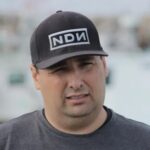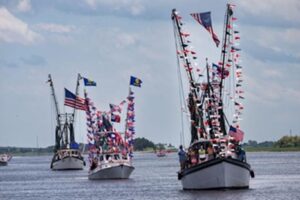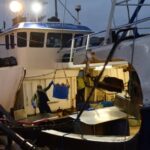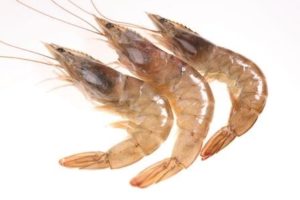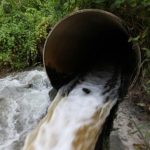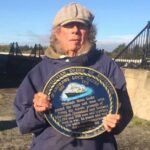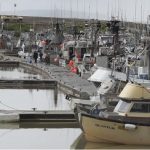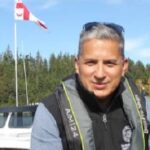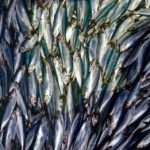Tag Archives: Community Supported Fishery
Female-run fishing businesses are keeping the industry alive in Gloucester, Mass.
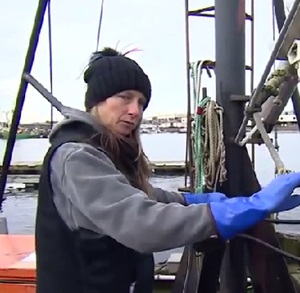 A few local business owners in Gloucester are hoping to expand the image of who is a fisherman. Melissa and Donna Marshall are two of those women. They own Cape Ann Fresh Catch, the largest community-supported fishery in the country. Donna started working with the CSF in 2009 when it was founded. When Melissa took the reins, she expanded Cape Ann Fresh Catch to include a smokehouse, Twin Light Smokehouse. Smoking fish is another way that the CSF can reduce waste. Owner Tessa Browne started Cape Ann Lobstermen in 2017 as a wholesaler of live lobsters and crabs. Video, more, >>click to read<< 08:09
A few local business owners in Gloucester are hoping to expand the image of who is a fisherman. Melissa and Donna Marshall are two of those women. They own Cape Ann Fresh Catch, the largest community-supported fishery in the country. Donna started working with the CSF in 2009 when it was founded. When Melissa took the reins, she expanded Cape Ann Fresh Catch to include a smokehouse, Twin Light Smokehouse. Smoking fish is another way that the CSF can reduce waste. Owner Tessa Browne started Cape Ann Lobstermen in 2017 as a wholesaler of live lobsters and crabs. Video, more, >>click to read<< 08:09
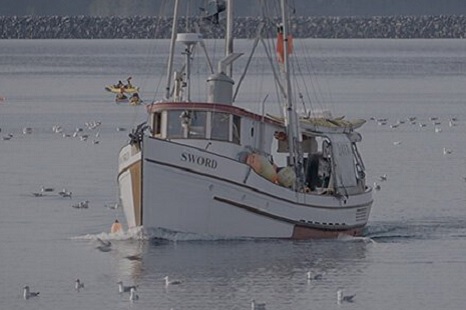
An Alaskan fish story, with a longline to Midland, Michigan
“It started with me and my mom commercial fishing together on an adventure together up in Alaska. I needed a deckhand and I didn’t have one, and I called my mom up. … She was in her mid-60s and she was up for it.” That was over ten years ago. For the past four and a half years, Caven and his mother, LoLita Pfeiffer, who lives in Midland, have sold fresh, wild-caught Alaskan fish to Midland. Fishing is normally a tradition passed down in families, but Caven had to learn fishing on his own. He spent nearly 15 years learning how to fish as a full-time fisherman, >click to read< 21:51
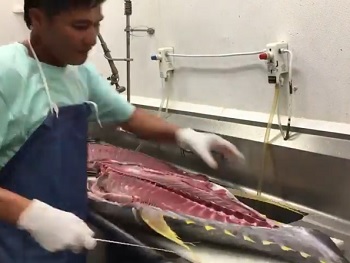
Practice, confidence key to breaking down a fish
I stepped tentatively into the fish-cutting arena guided by the patient, capable Ashley Watts, owner and operator of Local I‘a, which purchases fish from Oahu small-boat fishermen and sells them direct to restaurants and retail customers. Watts reaches the public via farmers markets and through a subscription program called a CSF, or community-supported fishery. Before taking me to the cutting board, Watts arranged for us to watch a master fish cutter at work. Talk about mastery of a craft. Self-taught Rodel Agonoy, who has been breaking down fish for 13 years, tackled a 110-pound yellowfin ahi caught by Kekoa Seward of Hawaii Kai, separating the meat from the spine and quartering it into giant fillets in about 3-1/2 minutes. Video, >click to read<21:10
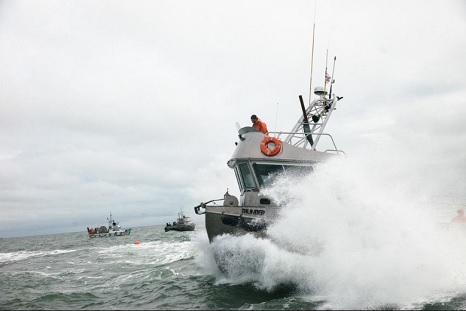
The story of a boy, a boat, and love at first bite
Kara Berlin was living the aspirational life of any young urbanite. She was raised in Washington by parents who took her outside to play. She went to college. She moved to Idaho to work a corporate job where terms like “fast track” and “executive management potential” littered her quarterly reviews. But then the economy happened and her employer closed up shop. In Sandpoint, she met Taran White. White had a lot of free time because it wasn’t salmon season. Berlin had a lot of free time because she was unemployed. So they took off to Asia to drink cheap cocktails, get $5 massages and fall in love. They wrote a business plan along the way, too. >click to read<18:04
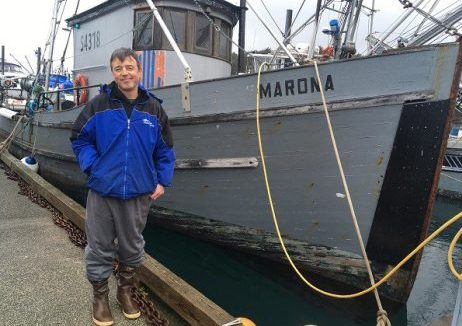
Kodiak jig fishermen explore other markets during poor cod season
Kodiak processors and fishermen are seeing the effects of the 80 percent cut to cod quota in the Gulf of Alaska. Some small boat fishermen who previously relied on targeting cod are turning to other means to make a profit. One way to do that is to join a community supported fishery, or CSF. That’s what some Kodiak jig fishermen are doing to bolster their incomes. Jig fisherman Darius Kasprzak holds up a scrap piece of iron from WWII. He says he picked it up off a beach and uses it as a weight for his line. “When people were making money cod fishing, you’d just buy lead weights, but those days are over.” >click to read< 14:36
Book Review: I got caught by Caught
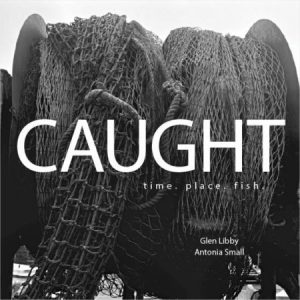 From Tony Small’s first photo and Glen Libby’s first quote, I was hooked by their wonderful book: Caught – Time. Place. Fish. “Changing the world was not as simple as it seemed here in Port Clyde, but a remarkable thing happened…” That’s the first thing I read, and it was so true: this is the story of a truly remarkable achievement in Port Clyde, Maine, one of my favorite places. As Port Clyde’s fishing industry declined, due to the disappearance of shrimp and other species, Glen jumped up and organized the first Community Supported Fishery (CSF) in the nation. The CSF was designed to process and sell the fish and allow fishermen to capture more of the profits. It was not an immediate success. click here to read the story 09:38
From Tony Small’s first photo and Glen Libby’s first quote, I was hooked by their wonderful book: Caught – Time. Place. Fish. “Changing the world was not as simple as it seemed here in Port Clyde, but a remarkable thing happened…” That’s the first thing I read, and it was so true: this is the story of a truly remarkable achievement in Port Clyde, Maine, one of my favorite places. As Port Clyde’s fishing industry declined, due to the disappearance of shrimp and other species, Glen jumped up and organized the first Community Supported Fishery (CSF) in the nation. The CSF was designed to process and sell the fish and allow fishermen to capture more of the profits. It was not an immediate success. click here to read the story 09:38
Billings fishing company offers sustainability and affordable wild salmon
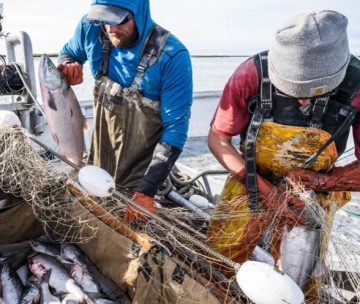 Every June, Joe Echo-Hawk makes the long trek to Bristol Bay, Alaska to catch thousands of pounds of sockeye salmon. The area around the Kvichak River has hosted generations of commercial fishermen. But a growing number of operations like Echo-Hawk’s have adopted a new business model that’s beneficial to the people fishing and consumers who enjoy their catch. Echo-Hawk operates Kwee-Jack Fish Co. with his wife, Angela Echo-Hawk. The Billings-based company does more than just catch the fish. It also distributes directly to consumers as a community supported fishery, or CSF. Customers can place orders for flash-frozen salmon fillets in 10-pound increments until May 26. Joe and a crew of two or three other fishermen travel to Bristol Bay in June and fish through July to catch the salmon to fill orders in Montana, Wisconsin and Pennsylvania. The fish is shipped on a barge to Seattle and trucked to Billings. Kwee-Jack guarantees delivery of the fish by early September. click here to view the photo gallery and read the story 12:16
Every June, Joe Echo-Hawk makes the long trek to Bristol Bay, Alaska to catch thousands of pounds of sockeye salmon. The area around the Kvichak River has hosted generations of commercial fishermen. But a growing number of operations like Echo-Hawk’s have adopted a new business model that’s beneficial to the people fishing and consumers who enjoy their catch. Echo-Hawk operates Kwee-Jack Fish Co. with his wife, Angela Echo-Hawk. The Billings-based company does more than just catch the fish. It also distributes directly to consumers as a community supported fishery, or CSF. Customers can place orders for flash-frozen salmon fillets in 10-pound increments until May 26. Joe and a crew of two or three other fishermen travel to Bristol Bay in June and fish through July to catch the salmon to fill orders in Montana, Wisconsin and Pennsylvania. The fish is shipped on a barge to Seattle and trucked to Billings. Kwee-Jack guarantees delivery of the fish by early September. click here to view the photo gallery and read the story 12:16
Dock to Dish Opens Florida’s First Community Supported Fishery
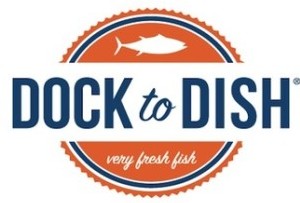 Dock to Dish, the first community and restaurant supported fishery program anchored in Montauk, announced last week it would open Florida’s first ever Community Supported Fishery (CSF) in Key West in February of this year. The program is being developed in conjunction with Key West restaurateur Chris Holland and the Florida Keys Commercial Fishermen’s Association. Read the rest here 14:00
Dock to Dish, the first community and restaurant supported fishery program anchored in Montauk, announced last week it would open Florida’s first ever Community Supported Fishery (CSF) in Key West in February of this year. The program is being developed in conjunction with Key West restaurateur Chris Holland and the Florida Keys Commercial Fishermen’s Association. Read the rest here 14:00

































